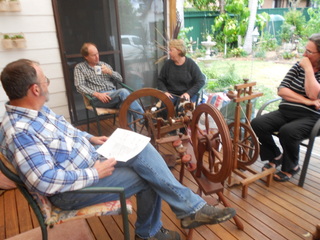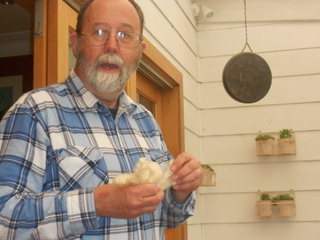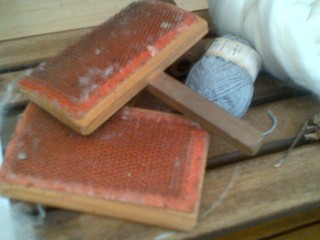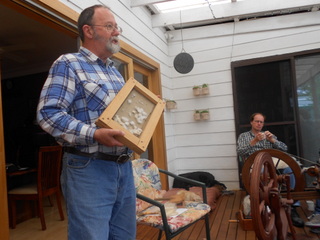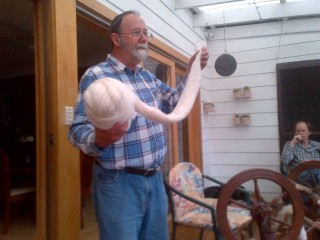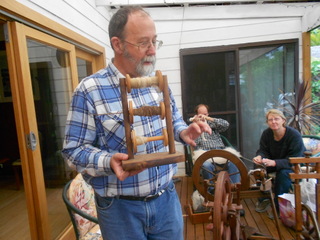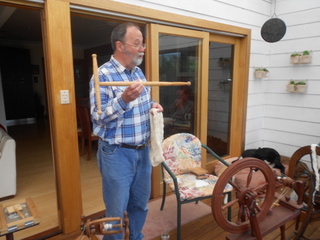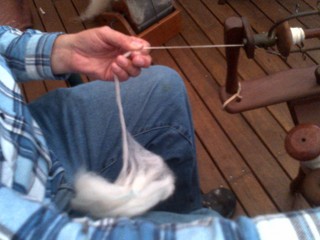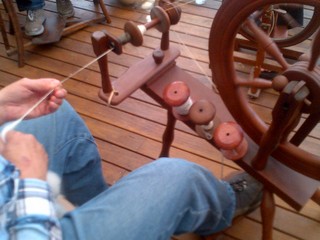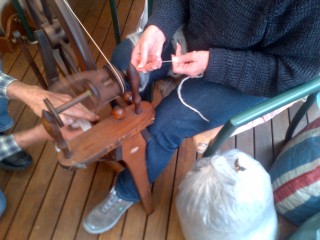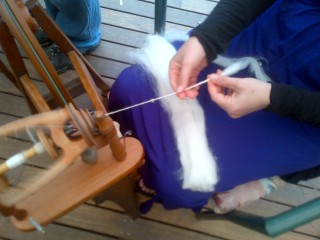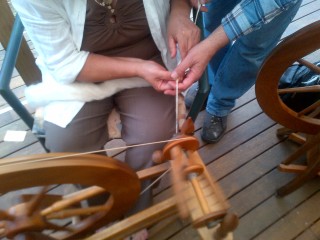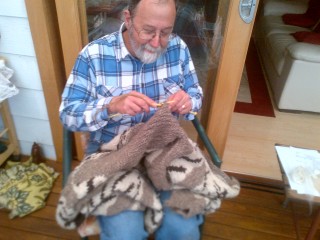An idea that was put forward by one of our members at Permaculture Sydney West (PSW) was for members to share the skills that they have developed over their lives. PSW is just a group of ordinary people but it became obvious that the membership had lots of skills that they could pass on to interested people, usually other members and the passion to do it. The person who suggested the idea is now the coordinator and she sets the sessions up as required.
There are a lot of things out there that our parents and grandparents knew how to do as a matter of course, but we of the modern world have not been interested enough to acquire the skills ourselves. It is great to see a resurgence of interest in things like knitting and crocheting, food growing and preserving but it makes things so much easier if you can find someone to show you how and then give you a chance to practice rather than just learning out of a book. What we were after was a format that would allow a small number of people to learn and practice a new skill in a relaxed informal atmosphere which would not cost a million dollars.
So we set the workshops up according to the following format –
- The workshop was on a practical skill that could be tried out, if not mastered within the workshop time frame.
- The workshop would usually be held at a members house
- If there was a charge it was only on a cost-recovery basis, the facilitator did not charge for their time.
- While one person facilitated in the main, others could assist, particularly if there were a larger number of people.
- Numbers were kept low, usually 6 to 10 per sessions.
- Sessions usually run for around 2-3 hours.
- Sessions were run on an ad hoc basis that worked out to roughly one a month, depending on availability of the facilitator and level of interest from the participants.
- Unless it is a food based skill (and sometimes even if it is!) everyone brings a plate of finger food to share and the host provides tea and coffee etc.
Over the past 12 months living skills workshops have been run on the following subjects –
- Making Tomato Past Sauce
- Introducing your Sewing machine
- Bicycle Maintenance
- Soap Making
- Making Rocket Stoves
- Raw Foods
- Vegetarian cooking
- Introduction to Spinning
- Edible Christmas Gifts
The session on spinning was facilitated by me and I will use it as an example of how they are run –
The coordinator and I discussed what we wanted to run and I had concerns that with only a couple of spinning wheels (which is all I thought I could get) some people would be standing around doing nothing so we decided to include an intro to felting as well. After setting the date and venue I had to think about what I wanted to cover and to help me remember everything I wanted to cover I put together a session guide. I also bought in enough wool top for everyone to be able to have a go at spinning wool (the easiest fibre to learn on) and some coloured wool to use in the felting, I was able to buy this very cheaply from Virginia Farm wool Works.
Fortunately I have a reasonable collection of spinning paraphernalia to take along that included hand carders, niddy noddy, spare bobbins, my cotton gin, spun cotton, cotton bolls for spinning as well as some of my books about spinning and felting and a couple of borrowed spinning wheels as well as my own. I set up the felting gear and books on the table out on the hosts’ back patio then placed enough chairs for everyone in a circle to make demonstrating easier. As luck would have it enough people turned up with a spinning wheel that they had begged borrowed (but not stole) so that everyone had access to one. With enough wheels for everyone we were able to concentrate on the spinning and leave the felting for another time when we could run a dedicated felting workshop.
Everyone arrived and arranged themselves; they were all from PSW so there was no need for introductions or ice breakers or stuff like that. Once everyone was settled we got started with what the parts of the wheel were called and how they worked and I handed out a diagram with all the parts of the wheel named because every new activity has its own jargon associated with it. Spinning is certainly no exception and because of its long history it has a very rich and varied language so we covered off that first. One of the people who came along brought a lazy Kate and drum carder so I was able to demonstrate those as well the other equipment I had brought along to show.
Strange as it seems, one of the hardest bits of spinning for the beginner is to get the wheel going in the right direction and then keep it going. The first activity then is to get everyone to just spend time treadling their wheel and getting used to the action which I then got everybody to practice for 10 or 15 minutes.
Once everyone had had some practice I called a break for tea and coffee or whatever and once we got back from that I demonstrated the long draw spinning technique with the wool top and the let everyone else have a go. Most of the rest of the workshop was given over to practice at spinning the wool, while I wandered around providing assistance to those who were having some problems. One lady was spinning pretty well early on but most of the others were moving along and improving slowly. Towards the end of the workshop I demonstrated the techniques for plying using a lazy Kate and how to spin cotton from the boll.
To run the workshop didn’t take very much effort and little cost and it is amazing the skills that people have, so if you are part of a Permaculture or other similar group, consider making living skills workshops part of your activities.



